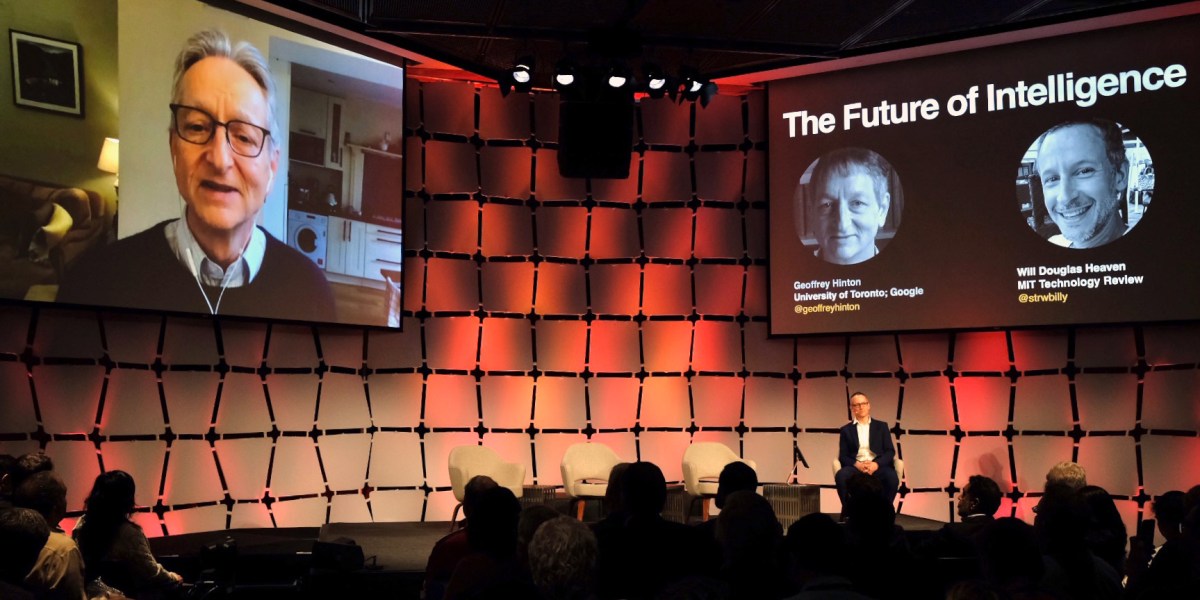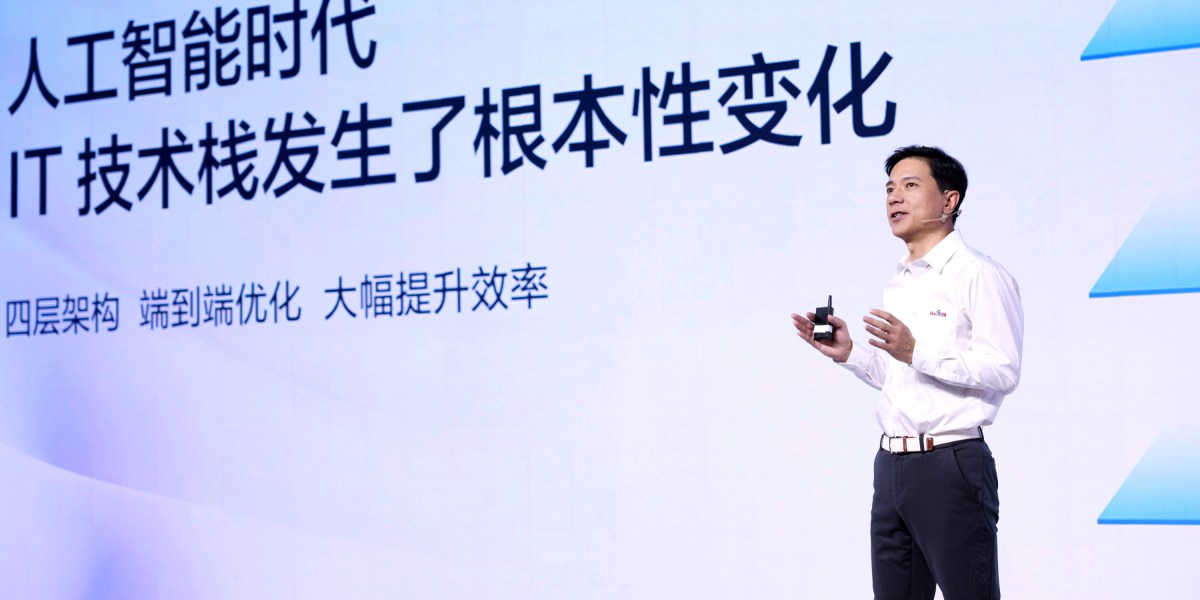The Download: in conversation with Geoffrey Hinton, and the future of solar geoengineering
This is today’s edition of The Download, our weekday newsletter that provides a daily dose of what’s going on in the world of technology.
Geoffrey Hinton talks about the “existential threat” of AI
Deep learning pioneer Geoffrey Hinton announced on Monday that he was stepping down from his role as an AI researcher at Google after a decade with the company. He says he wants to speak freely as he grows increasingly worried about the potential harms of artificial intelligence.
Prior to the announcement, Will Douglas Heaven, MIT Technology Review’s senior editor for AI, interviewed Hinton about his concerns—read the full story here.
Soon after, the two spoke at EmTech Digital, MIT Technology Review’s signature AI event, discussing everything from why humanity could be just a passing phase in the evolution of intelligence, to why he thinks computers are better at learning than humans. Watch their conversation in full.
The inside scoop on solar geoengineering
Over the past few weeks, it’s felt like solar geoengineering has suddenly become a huge part of the public conversation around the climate. Geoengineering is an umbrella term that covers a wide range of efforts to alter the Earth, usually in some way related to holding back climate change.
Solar geoengineering involves reflecting some of the sun’s radiation back into space, which could, in theory, help cool the planet, counteracting the warming caused by greenhouse-gas emissions.
The problem is that nobody can really agree whether we should even be studying solar geoengineering, much less doing it. Yet a handful of scientists are throwing caution to the wind and doing it anyway. Read the full story.
—Casey Crownhart
Casey’s story is from The Spark, her weekly newsletter giving you the inside track on all things climate and energy. Sign up to receive it in your inbox every Wednesday.
The must-reads
I’ve combed the internet to find you today’s most fun/important/scary/fascinating stories about technology.
1 Striking TV writers want to stop AI-written scripts
It’s the first time they’ve officially pushed back against studios’ use of generative tools. (Motherboard)
+ The last writers’ strike cost LA’s economy more than $2 billion. (Insider $)
+ The inside story of how ChatGPT was built from the people who made it. (MIT Technology Review)
2 The FTC is considering barring Meta from monetizing childrens’ data
An independent assessment found its privacy program still poses ‘substantial risks to the public.’ (CNBC)
3 Google is edging closer to ditching passwords for good
Cryptographic passkeys are both easier and safer. (The Verge)
+ The end of passwords. (MIT Technology Review)
4 Bing’s AI chatbot will let you search for images
Meaning you won’t have to type out such complicated prompts. (Bloomberg $)
+ Microsoft is tinkering with a private version of ChatGPT. (The Information $)
5 How a controversial gunshot detection firm wooed Portland Police
Shotspotter aggressively marketed its services in the wake of devastating gun violence. (The Guardian)
+ A private security group regularly sent Minnesota police misinformation about protestors. (MIT Technology Review)
6 Chinese shopping giant Temu is moving to Ireland
It’s in a bid to protect itself as relations between the US and China continue to sour. (FT $)
+ This obscure shopping app is now America’s most downloaded. (MIT Technology Review)
7 Our underwater kelp forests are dying
And that’s not good news for the climate. (Vox)
+ Running Tide is facing scientist departures and growing concerns over seaweed sinking for carbon removal. (MIT Technology Review)
8 Online communities are trading tips on how to skip Ozempic doses
They want to enjoy their food—for some of the time, at least. (The Atlantic $)
+ Weight-loss injections have taken over the internet. But what does this mean for people IRL? (MIT Technology Review)
9 There’s no easy money left in Silicon Valley anymore
This time, it’s China’s VCs who are suffering. (Wired $)
10 We still haven’t arrived at a holographic description of the universe
But plenty of scientists are trying their best. (New Scientist $)
Quote of the day
“It all went south. But it happened and all we can do now is build something to avoid that ever happening again.”
—Jack Dorsey reflects on what’s happened to Twitter since Elon Musk took over, and why he’s backing a new, similar platform called BlueSky, the New York Times reports.
The big story
The FBI accused him of spying for China. It ruined his life.

June 2021
In April 2018, Anming Hu, a Chinese-Canadian associate professor at the University of Tennessee, received an unexpected visit from the FBI. The agents wanted to know whether he’d been involved in a Chinese government “talent program,” offering overseas researchers incentives to bring their work back to Chinese universities.
Not too long ago, American universities encouraged their academics to build ties with Chinese institutions, but the US government is now suspicious of these programs, seeing them as a spy recruitment tool. Despite Hu’s denial he was involved in such programs, a little less than two years later, they showed up again—this time to arrest him. Read the full story.
—Karen Hao & Eileen Guo
We can still have nice things
A place for comfort, fun and distraction in these weird times. (Got any ideas? Drop me a line or tweet ’em at me.)
+ This adventurous moose knows there’s nothing quite like cinema popcorn.
+ Colombian hot chocolate with cheese sounds like it shouldn’t work—so I’ll have to take your word that it does.
+ I enjoyed this puppet rendition of A Thousand Miles (thanks Mark!)
+ A trip to the most remote spot on Earth sounds pretty good to me right now.
+ Cheese doesn’t give you bad dreams after all, and other health myths you should either ignore or take to heart.




